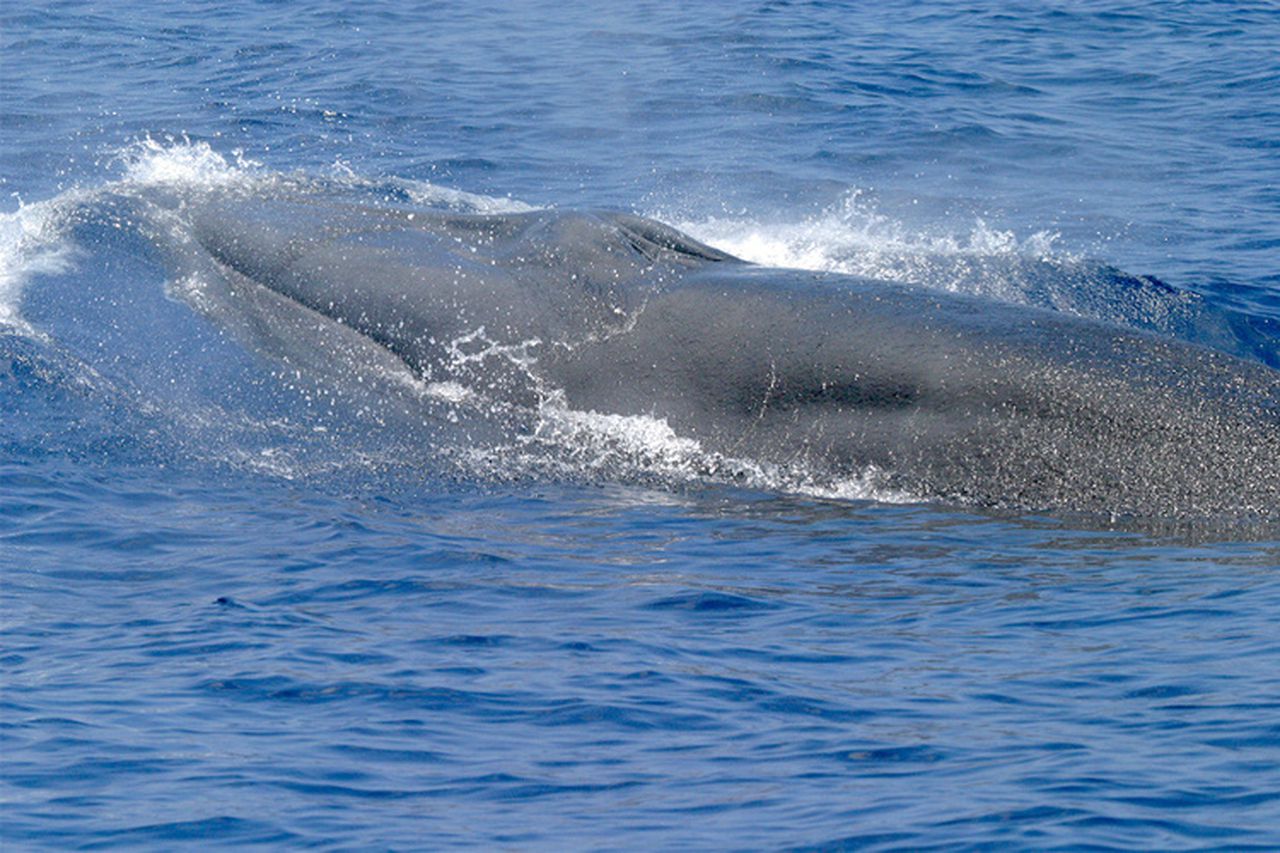Protecting one of the worldâs rarest whales could hurt Port of Mobile, officials say
Port of Mobile officials are keeping a close eye on a new proposal that, if enacted, would force shipping companies to shut down operations in a stretch of the northern Gulf of Mexico during nighttime hours.
The National Oceanic and Atmospheric Administration (NOAA) is considering the proposal, which would also include speed restrictions, at the request of multiple ocean advocate organizations, which say the restrictions are needed to help protect Rice’s whales, a critically-endangered species.
Scientists estimate there are only about 50 Rice’s whales left in the Gulf, according to the Marine Mammal Commission. It’s one of the rarest whale species on earth and the only baleen whale that lives year-round in the northern Gulf.
The MMC says Rice’s whales — named for American biologist Dale Rice — live primarily off the coast of the Florida Panhandle, in waters between 100-400 meters deep, which is why the proposal under consideration would shut down nighttime shipping between Tampa Bay and Pensacola, call for a 10-knot speed limit near the whales’ habitat, and extend about six miles out beyond the whales’ habitat zone.
The Florida Ports Council has been outspoken in its concern over the proposal. But it’s not alone.
“There are a lot of potential ramifications and ripple effects of this (proposal),” said Maggie Oliver, Vice President of Communications & Federal Affairs for the Port of Mobile. “We’re obviously following it very closely and we’ve submitted our official comments to NOAA about our concerns.”
The proposal was initially submitted in May 2021 by the advocacy groups and a 90-day public comment period ended Thursday. Oliver noted, however, there’s still a long way to go before the proposal could be adopted or enacted.
“It is still pretty preliminary,” she said. “In the beauty of bureaucracy, there are a large number of steps before it could be enacted and enforced, so there’s plenty of room to advocate for a better solutions. That’s the good news.”
The Port of Mobile has an estimated economic impact of $85 billion to Alabama each year. The Port handles in excess of 55 million tons of domestic and international cargo and creates, both directly and indirectly, some 300,000 jobs. The Port also has an estimated tax impact of $2 billion.
Those figures clearly indicate that any new regulation that would have a negative impact on shipping would be bad news for the port, and the state.
“It definitely would have an impact on the port,” Oliver said. “One of the things we’ve been most proud of the past couple of years is not only our growth through the pandemic, but our ability to keep cargo moving. That fluidity is something we are always selling to potential customers.
“If vessels have to stop nighttime operations, especially during winter months when the days are shorter, you’re losing half of your productivity. These vessels operate 24 hours a day, seven days a week. In this industry, the sooner you can get something where it’s going, the less it’s going to cost the cargo owner.”
The Florida Ports Council called the proposed regulations “a clear and present danger to Florida’s economy,” according to a statement released by the council.
“It’s as if NOAA wants Florida to hang up a ‘closed for business’ sign,” said Mike Rubin, the council’s president and CEO. “Florida’s Gulf of Mexico seaports play an enormous role in fueling (petrol) Florida, and are essential suppliers of everything from food to medical supplies, and construction materials to build homes, roads and make ongoing hurricane repairs in Southwest Florida.”
Oliver said the Port of Mobile, like the Florida Ports Council, had submitted its official comments to NOAA, outlining their concerns about the proposal. She and other port officials are hopeful of finding a better way to protect the whales without negatively impacting shipping.
“That’s what our comments focused on, finding a better way,” she said. “With the technology we have today, there has to be something out there. If planes can navigate with radar, surely there’s some sort of sonar, some sort of detection, that’s a little more advanced than just a rudimentary, blanket restriction that may or may not help.”
With the public comment period ended, the decision is in NOAA’s hands. As Oliver noted, it’s a lengthy process which could lead to establishing the formal regulations or simply denying the petition. She said if the regulations were adopted, they might not achieve the desired effect, because shipping companies could simply double the number of ships crossing the area, creating more traffic in the whales’ habitat.
“If you’ve got vessels taking twice the time to get here, you could see the shipping companies respond by doubling the number of ships to get the same amount of cargo where it needs to go,” Oliver said. “That would cost more, but certainly that’s a possibility if their ability to maneuver was cut in half.”
